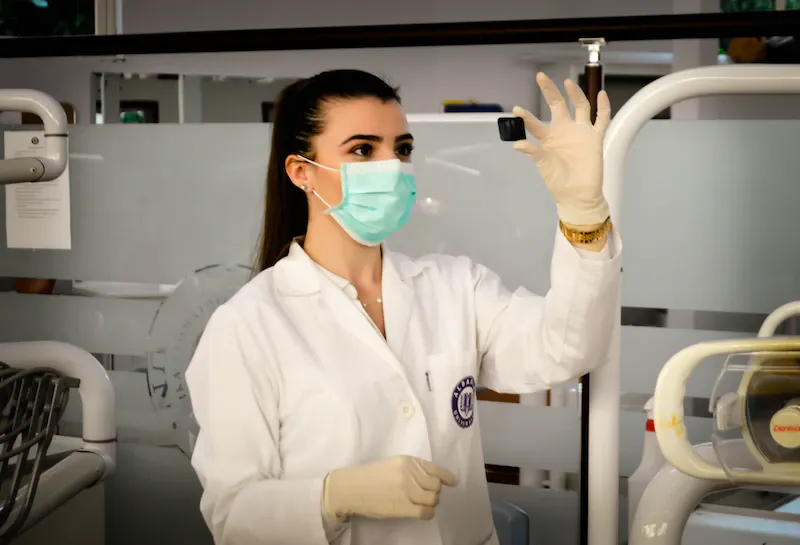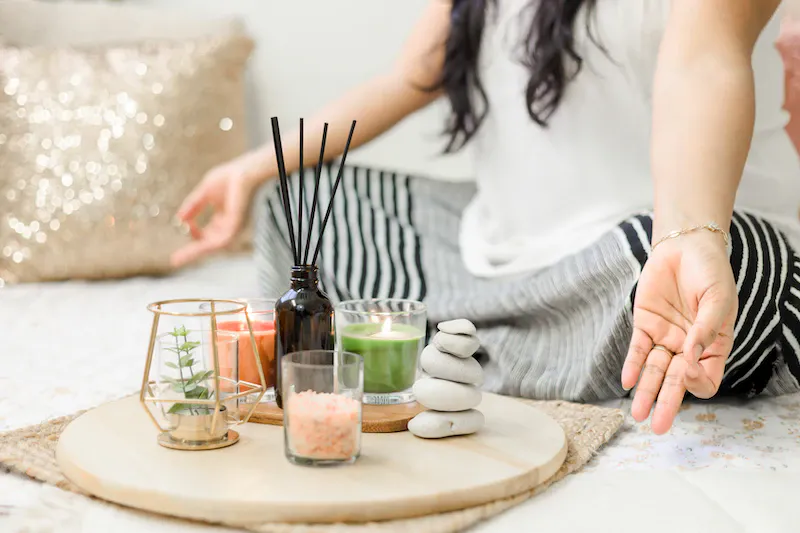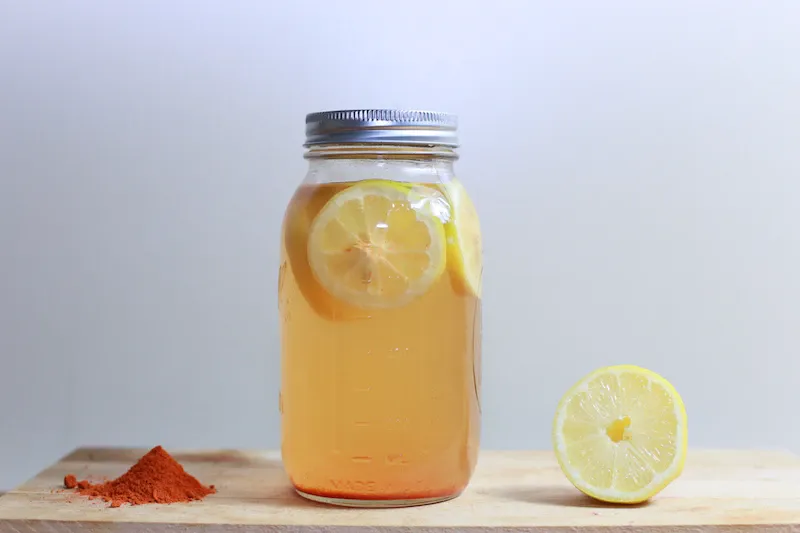The Power of Gaming for Toughness and Growth

How Playing Games Can Increase Your Lifespan by 7.5 Minutes
You might have heard that playing games can be a waste of time or that they’re just for kids. But what if I told you that playing games can actually help you live longer? That’s right - according to recent studies, playing games can increase your lifespan by 7.5 minutes.
Now, you might be wondering how this is possible. It all comes down to the mental stimulation that games provide. When you play games, your brain is forced to work harder than it would during normal activities. This mental exercise helps to strengthen your cognitive abilities and can even help to ward off diseases like Alzheimer’s.
But it’s not just the mental benefits that can help you live longer. Playing games can also help to reduce stress levels, which is a major factor in many health problems. When you’re playing a game, you’re focused on the task at hand and not worrying about the other stresses in your life. This can help to lower your blood pressure and reduce your risk of heart disease.
Of course, it’s important to remember that not all games are created equal. While some games can be beneficial, others can be a waste of time or even harmful. The key is to choose games that challenge your brain and keep you engaged.
So, the next time you’re feeling guilty about playing a game, remember that it could actually be helping you live longer. Whether you’re into puzzle games, strategy games, or even action-packed shooters, there’s a game out there for everyone. So go ahead and give your brain a workout - your body will thank you for it.
How Gaming Benefits Can Help Avoid Hospice Workers’ Top Regrets
Hospice workers are known for helping people in their last stages of life. They often spend time with patients and their families to ensure they are comfortable and well taken care of. Interestingly, hospice workers’ top five regrets align with the benefits of gaming.
One of their top regrets is that they wish they hadn’t worked so hard. This regret can be tied to the benefit of gaming as it can help reduce stress levels and provide a much-needed break from work-related stress. Gaming can be an excellent way to unwind and release tension after a long day of work.
Another regret is that they wish they had stayed in touch with their friends. Playing games with friends can be an excellent way to stay connected and have fun together, even when life gets busy. Multiplayer games can help foster teamwork and communication skills, making it a great way to bond with friends and colleagues.
Hospice workers also regret not allowing themselves to be happier. Gaming can be a source of happiness and joy, especially when playing a game you enjoy. It can help take your mind off things and provide a fun distraction from the challenges of life.
Furthermore, hospice workers regret not being true to themselves. Gaming can help you express your creativity and explore different parts of yourself. It allows you to take on new roles and live out exciting adventures in virtual worlds.
Lastly, hospice workers regret not having the courage to express their feelings. Gaming can help with this as well. Games can evoke different emotions and help players develop empathy and emotional intelligence. This can translate to real-life situations, helping players become more comfortable expressing themselves and their feelings.
In summary, gaming benefits can help avoid the top regrets of hospice workers. It can provide a much-needed break from work-related stress, help people stay connected with friends, and be a source of happiness and joy. Additionally, gaming can help people express their creativity, explore different parts of themselves, and become more comfortable expressing their feelings.
SuperBetter: How a Game Helped its Creator Overcome Trauma
SuperBetter is a game that was created by Jane McGonigal, a game developer and researcher who suffered a serious concussion in 2009. After her injury, she found herself struggling with depression, anxiety, and suicidal thoughts. As someone who had spent her career studying the benefits of gaming, Jane turned to what she knew best and created a game that would help her recover.
SuperBetter is a game designed to help players build toughness and overcome challenges. In the game, players take on the role of a superhero and complete quests that are aimed at improving their physical, emotional, and social well-being. The game uses a variety of strategies from positive psychology and cognitive-behavioral therapy to help players build toughness and cope with adversity.
For Jane, SuperBetter was a lifeline. The game gave her a sense of control over her situation and provided her with a way to track her progress as she recovered. It also allowed her to connect with others who were going through similar experiences, which helped her to feel less alone.
SuperBetter has since become a popular tool for therapists and patients dealing with a range of mental and physical health issues. The game’s success has led to the development of a SuperBetter app, which allows users to create their own customized challenges and track their progress over time.
The story of SuperBetter is a testament to the power of gaming as a tool for healing and personal growth. It shows that games can be more than just a form of entertainment – they can be a source of strength, toughness, and hope for those facing difficult challenges.
Playing Games Can Help with Anxiety and Depression
Many people tend to think that playing games is a waste of time and can even be harmful to mental health. However, research has shown that playing games can actually help people with anxiety and depression.
When someone plays a game, they can get lost in the story, the characters, and the challenges presented to them. This immersion can help distract them from negative thoughts and feelings that may be causing their anxiety or depression. Additionally, games can provide a sense of control and accomplishment, which can boost self-esteem and confidence.
Certain games, like puzzle games and role-playing games, have been found to be particularly effective in reducing symptoms of anxiety and depression. Puzzle games can help promote mindfulness and relaxation, while role-playing games can offer a sense of connection with others and provide an opportunity for social interaction.
Of course, it’s important to remember that playing games shouldn’t be a substitute for seeking professional help if someone is struggling with mental health issues. However, incorporating gaming into one’s self-care routine can be a helpful tool for managing symptoms and improving overall well-being.
The Science Behind Post-Traumatic Growth
Post-traumatic growth refers to the positive changes that can result from the experience of trauma. While it’s common to hear about the negative effects of trauma, such as PTSD, it’s important to recognize that some individuals are able to find meaning and grow from their experiences.
Research shows that post-traumatic growth can be influenced by a number of factors, including social support, cognitive processing, and coping strategies. One way to facilitate post-traumatic growth is through the use of video games.
Playing video games can provide a sense of control, mastery, and giving power that can be especially beneficial for individuals who have experienced trauma. Games can also provide a safe space to practice coping skills and engage in social interactions.
Furthermore, video games that incorporate elements of narrative and storytelling can help individuals make sense of their experiences and find meaning in them. This sense of meaning-making has been identified as a key component of post-traumatic growth.
While more research is needed to fully understand the relationship between video games and post-traumatic growth, the evidence thus far is promising. If you or someone you know has experienced trauma, incorporating video games into the healing process may be worth considering as a potential tool for fostering post-traumatic growth.
Understanding the Four Types of Strength That Contribute to Post-Traumatic Growth
Post-traumatic growth refers to positive psychological changes that can result from facing adversity and trauma. While many people are familiar with the negative effects of trauma, such as post-traumatic stress disorder (PTSD), research has shown that it is possible to experience personal growth and increased toughness after experiencing trauma.
According to the original speaker’s memories, there are four types of strength that can contribute to post-traumatic growth. The first is emotional strength, which involves the ability to manage and regulate emotions effectively. This includes being able to express and process emotions in a healthy way, without becoming overwhelmed or shutting down.
The second type is relational strength, which involves having a strong support system and the ability to form positive relationships with others. This can include close friendships, family members, or even support groups and therapists.
The third type is cognitive strength, which involves the ability to make sense of and find meaning in traumatic experiences. This can involve reframing negative experiences in a positive light, finding purpose and meaning in difficult situations, and developing a sense of personal growth and toughness.
Finally, there is physical strength, which involves taking care of oneself physically, such as through exercise, healthy eating, and restful sleep. Physical strength can also include engaging in activities that promote relaxation and reduce stress, such as mindfulness and meditation.
Overall, the four types of strength are interrelated and can work together to contribute to post-traumatic growth. By building and strengthening these different types of strength, individuals can increase their toughness and ability to cope with adversity and trauma.
Activities backed by science that can enhance toughness without trauma
Toughness is the ability to adapt and cope with stress and adversity. It is a crucial skill that helps us navigate the ups and downs of life. While trauma can trigger the development of toughness, it is not the only way to build it. There are several scientifically validated activities that can help enhance toughness without experiencing trauma.
One such activity is practicing mindfulness meditation. Research has shown that regular meditation can reduce stress and anxiety and improve mood, leading to increased toughness. Another activity that can help build toughness is practicing gratitude. Studies have found that expressing gratitude can increase positive emotions and reduce negative emotions, which can contribute to greater toughness.
Engaging in physical activity is another way to build toughness. Exercise has been shown to reduce stress, improve mood, and increase feelings of self-efficacy and control, all of which can contribute to greater toughness. Additionally, participating in social support networks can enhance toughness by providing a sense of belonging and support.
Finally, learning and practicing cognitive skills like positive thinking, problem-solving, and goal-setting can also help build toughness. These skills can help individuals reframe challenging situations in a more positive light, set and achieve goals, and develop a sense of purpose and meaning in life.
In conclusion, building toughness is essential for navigating the challenges of life. While trauma can be a catalyst for developing toughness, there are several scientifically validated activities that can enhance it without experiencing trauma. By practicing mindfulness, gratitude, physical activity, social support, and cognitive skills, individuals can develop and strengthen their toughness.
Building Physical Toughness with Small Movements
Incorporating small movements into your daily routine can have a significant impact on your physical toughness. It can help you build up strength, endurance, and mobility, making it easier for your body to handle stress and recover from injuries.
Some examples of small movements that you can try include stretching, yoga, Pilates, and tai chi. These exercises are low-impact and can be adapted to your fitness level, making them ideal for beginners and people with physical limitations.
Stretching can improve flexibility, reduce muscle tension, and prevent injuries. Yoga and Pilates focus on building core strength, balance, and flexibility. Tai chi is a gentle form of martial arts that can help improve balance, reduce stress, and increase energy levels.
In addition to these exercises, you can also incorporate small movements into your daily routine, such as taking the stairs instead of the elevator, going for a short walk during your lunch break, or doing a few jumping jacks during TV commercials.
Remember, building physical toughness takes time and consistency. Start with small movements and gradually increase the intensity and duration as you feel more comfortable. With persistence, you can build a strong and resilient body that can better withstand the challenges of life.
Conclusion
In conclusion, the benefits of gaming go beyond just entertainment. As we have seen, gaming can improve our physical health, mental well-being, and overall quality of life. Whether it’s building toughness through small movements, finding post-traumatic growth through games like SuperBetter, or increasing our lifespan by a few minutes through regular play, the positive effects of gaming cannot be denied.
Furthermore, scientific research has shown that gaming can be a powerful tool for developing important life skills, such as problem-solving, creativity, and strategic thinking. It can also provide a sense of community and social connection, especially during times of isolation.
Of course, as with anything, moderation is key. Too much gaming can have negative consequences, such as addiction or neglecting other important aspects of life. However, when done in a balanced and responsible manner, gaming can be a valuable and enjoyable part of our lives.
So, next time you sit down to play your favorite game, remember that you’re not just having fun – you’re also doing something good for yourself.


